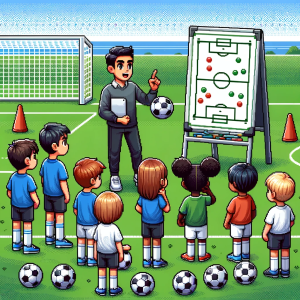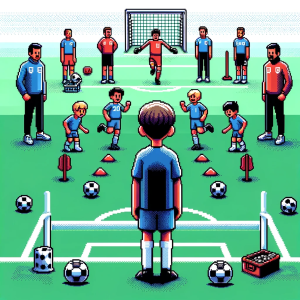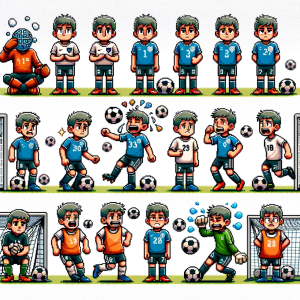
Unveiling Soccer Talent: Insights from the Scottish Performance School Trials
Aspiring soccer stars and coaches, have you ever wondered what makes a young player stand out in the fiercely competitive world of soccer? The study, “Talent identification in soccer: The influence of technical, physical and maturity-related characteristics on a national selection process,” published in PLoS ONE, sheds light on this very question. Let’s dive into this insightful research, unravel its findings, and understand how it can revolutionize soccer coaching and player development.
The Essence of the Study
Conducted by King et al. (2024), the study analyzed 90 adolescent soccer players from the Scottish Performance School trials. Researchers sought to identify what physical, technical, and maturity-related factors influenced the selection of successful players. Utilizing a blend of physical fitness tests and small-sided games, they assessed players’ technical skills and locomotor activities. This holistic approach, combining open (games) and closed (testing) environments, aimed to provide a more comprehensive understanding of a player’s potential.
Key Findings: What Sets a Successful Player Apart?
1. Technical and Physical Prowess
One striking revelation was that successful players displayed significantly higher technical abilities and physical performance. In the small-sided games, they exhibited more touches, time on the ball, and high-speed releases. They also covered more distance at high speed and showed greater agility in physical tests.
[and we’ve emphasized small-sided games in the past]
2. Maturation is Not a Deciding Factor
Interestingly, the study found no significant bias toward players’ maturity status (age, height, weight). This indicates a shift in talent identification, focusing more on players’ skills and physical attributes rather than their maturity level.
Implications for Soccer Coaching and Development
Embracing Objective Data
This study underscores the importance of integrating objective data in talent identification. Coaches can now rely on quantifiable measures of a player’s game performance, moving beyond subjective judgments.
Training Focus
For coaches, this highlights the need to develop young players’ technical skills and physical fitness. Emphasizing agility, speed, and ball control could be key to nurturing future soccer talents.
Rethinking the Selection Process
With no significant differences in maturity among selected and unselected players, this study challenges traditional biases in player selection. This could encourage a more equitable and skill-focused approach to scouting young talent.
Why This Matters
This research is a game-changer for soccer academies and coaches worldwide. It provides a scientific basis for identifying and nurturing young talent, ensuring that selection processes are fair and focused on the right attributes. Coaches need to adapt their training methods and selection criteria, prioritizing skill and fitness over physical maturity.
In a Nutshell
The study offers invaluable insights into the intricate process of scouting and developing young soccer talent. Its findings have significant implications for how we approach coaching, training, and the overall development of young players. It’s an essential read for anyone involved in the beautiful game.
Be Part of Soccer’s Scientific Revolution: “Discover the unseen facets of soccer with ‘This Week in Soccer’.
Our newsletter brings you closer to the game’s strategic and scientific dimensions, with content tailored for coaches, educators, and fans alike. Utilizing advanced AI tools, we make complex soccer science accessible and engaging. Don’t just watch soccer, understand it. Subscribe to our newsletter now!



